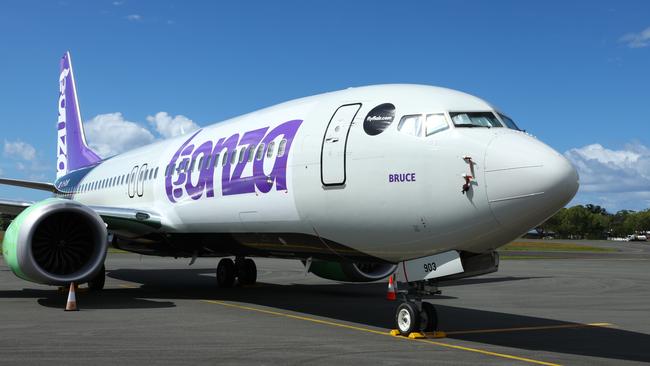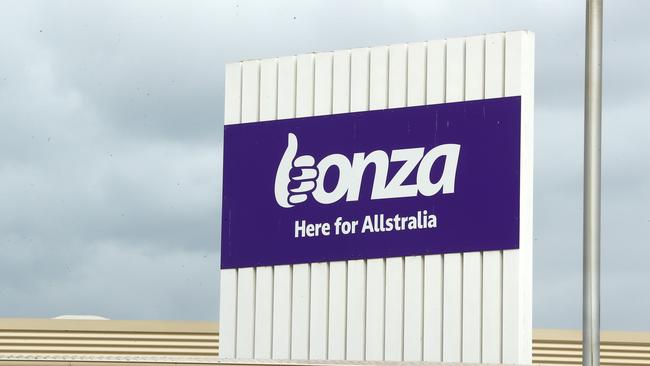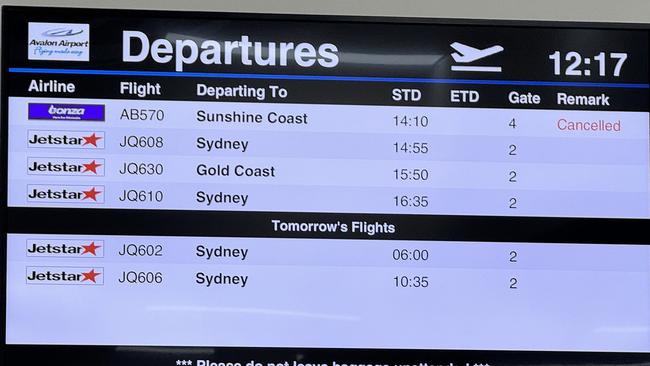
Weeks of financial uncertainty came to a head on Tuesday after administrator Hall Chadwick was appointed to Bonza’s two main operating companies. This followed a morning of chaos whereby the airline start-up had its fleet of four Boeing 737s repossessed, and passengers and even staff were left high and dry.
Even this week, Bonza was selling tickets through its website – its only distribution channel. Now attention will turn to Bonza’s questionable backers, the Miami-based hedge fund 777 Partners, that is better known for its bets on second-tier football clubs than aviation. In fact, 777 Partners, founded by Josh Wander and Steve Pasko, honed much of its trade as litigation financiers.

It’s a well worn story: An aviation disrupter making a splash in the Australian market with the promise to unlock the grip on the market held by Qantas and Virgin.
Except this time, Bonza was trying to disrupt the disruption playbook and made three fatal errors. This meant the airline never really got a chance from its (much delayed) start.
Bonza’s first and perhaps biggest error is it ignored the “triangle”. This covers the three big routes spanning Melbourne-Sydney-Brisbane. Collectively, traffic travelling between these markets account for more than a third of the nation’s total aviation market. But importantly, they allow a network to be built out, to help keep costs down, which can ferry in staff and passengers to be sent to smaller routes. Bonza’s only capital city hub was Melbourne Airport, but from there it flew a bewildering array of regional routes, including Melbourne-Albury and Melbourne-Mildura, As well as Mackay, Rockhampton, Townsville and Darwin. All of these destinations are built around the volatile tourism market, and none was able to leverage the advantages of a network.
Secondly, the planes Bonza leased – Boeing 737 Max 8s – were too big and expensive to operate on regional routes. The aircraft, along with the Airbus rival, are the workhorses of Qantas’ and Virgin’s domestic fleet. They carry about190 passengers and are ideal for the big intercity routes.
But they are too thirsty and hungry to fly in the regions. On regional routes, Qantas flies a 717 with a little over 100 seats. Virgin has an Embraer which has fewer than 100. The fleet of regional specialist Rex is dominated by the Saab 340, which seats just 36 passengers at a time.
The overcapacity would force Bonza to offer ultra-discounted tickets to boost load factor to get the cashflow, but this is a strategy of ever diminishing returns.
Finally, and just as important, any aviation start-up needs deep pockets. Richard Branson famously joked that running an airline would turn any billionaire into a millionaire.
Miami’s 777 Partners outwardly has little appetite for long-term returns. It has in its portfolio a string of sports investments – from Melbourne Victory, Italian second division club Genoa and a stake in the British Basketball League – and it is trying to secure UK Premier League club Everton in a debt for equity deal.
Australian aviation: a cash-hungry market
As my colleague, Ben Butler writes, it has a long tail of litigation including planes being repossessed in Canada and a class-action suit in the US for running a payday lending scam out of an Indian tribe in South Dakota in an effort to bypass lending laws.
Even Virgin Australia’s deep-pocketed backer, Bain, has found Australian aviation to be a cash-hungry market to invest in and has delayed a planned initial public offering. Prior to its 2020 administration, Virgin had very big backers with Singapore and Etihad and China’s HNA. But they endured years of losses before the airline ultimately collapsed, following the groundings of the Covid-19 pandemic.

Rex has more than 20 years’ backing and obsessive focus from a wealthy Singaporean investor, Lim Kim Hai.
Qantas, was forced to raise emergency cash at a deep discount and posted multiple billions of dollars in losses through the pandemic that even today it is still recovering from.
The demise of Bonza airlines
From surging oil prices to weather and even economic shocks, conditions in aviation are rarely stable and always costly. So who wins out of the demise of Bonza?
The airline was so niche and erratic that it was never proven to be a serious competitor to put pricing tension on the broader market.
The immediate spillover would be for regional player Rex, although the Singaporean-backed airline is spending much of its efforts catching a slice of the lucrative Melbourne-Sydney market, where Bonza didn’t fly.
Bonza was too narrowly focused to be a serious competitor for Qantas or even its low-cost Jetstar subsidiary.
At the same time, Virgin Australia faces its own pressures as it seeks a new chief executive and new direction after Bain Capital essentially cut current boss Jayne Hrdlicka’s tenure short.
Bonza came in with a splash and ended, like they all do, with a whimper.
johnstone@theaustralian.com.au




Bonza, like OzJet, Air Australia and Compass, is the latest to make a hard landing on Australia’s scrap heap of aviation. Unlike some – Virgin Australia, and even Ansett albeit briefly, Bonza is unlikely to take to the skies again.